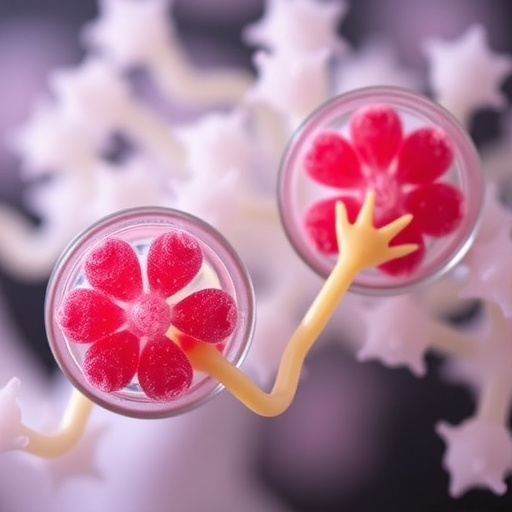In a groundbreaking development within the field of regenerative medicine, a team of researchers has made significant strides in the systematic production of human kidney organoids. This innovative approach aims to address one of the most pressing challenges facing modern transplant medicine: the acute shortage of donor organs. Published in Nature Biomedical Engineering, the study by Garreta et al. reveals a compelling methodology that not only enhances organoid manufacturing but also optimizes their function through advanced machine perfusion techniques in porcine kidneys.
The motivation behind this pioneering research stems from the dire need for functional human organs to treat renal failure. Traditional organ donation remains vastly inadequate, with thousands of patients awaiting transplants each year. By creating human kidney organoids, researchers hope to pave the way for a scalable solution that could significantly alleviate the burden on the transplant waiting list while improving patient outcomes.
The groundwork for the study was laid through meticulous research into stem cell biology and tissue engineering. Human kidney organoids are formed from pluripotent stem cells, which can develop into various cell types. This remarkable ability allows scientists to replicate kidney structures and functions in vitro, closely mirroring those of real human organs. In their study, the authors detail the step-by-step process of developing these organoids, ensuring consistency and functionality.
One of the key highlights of Garreta et al.’s work is the integration of ex vivo machine perfusion—an innovative technique that allows for the continuous supply of nutrients and oxygen to the organoids. This method significantly enhances the viability and function of the organoids when transplanted into porcine kidneys, which serve as a preclinical model. The results demonstrate that the organoids not only survive but thrive in this environment, exhibiting characteristics akin to those of natural kidneys.
Furthermore, the researchers explored how different perfusion parameters impact the growth and maturation of the organoids. By adjusting flow rates and perfusion pressures, they were able to optimize conditions that promote kidney-specific functions such as filtration and hormone synthesis. Such refinements are critical for ensuring that the transplanted organoids can adequately support bodily functions post-transplantation.
The study provided compelling evidence of the organoids’ ability to respond to physiological signals similar to actual human kidneys. This responsiveness is pivotal, as it suggests that these bioengineered organs could integrate seamlessly into host systems, potentially leading to functional kidney replacements that minimize rejection chances.
Additionally, ethical considerations surrounding organ transplantation were addressed. The ability to produce human organoids from stem cells poses a transformative potential for reducing reliance on human donors and addresses moral concerns associated with organ harvesting. As the development of human kidney organoids progresses, it also opens doors for personalized medicine, where patients can receive organoids tailored to their genetic makeup, thereby enhancing compatibility and efficacy.
The implications of this research extend far beyond kidney transplants. The methodologies addressed in this study could be adapted for generating organoids for other organs, thus laying the groundwork for an organ-specific transplantation revolution. As scientists delve deeper into the complexities of organoid production, the dream of growing fully functional human organs within a laboratory setting inches closer to reality.
Moreover, the combination of tissue engineering and bioprinting technologies holds promise for the future of organ fabrication. As methods for 3D printing biocompatible scaffolds develop, researchers can envision creating complex, multidimensional organ structures that encompass intricate vasculature and cellular diversity, mirroring the functionality of native organs.
In conclusion, Garreta et al. present a paradigm shift in the field of regenerative medicine with their systematic approach to human kidney organoid production. Their work not only addresses the urgent need for organ transplant solutions but also sets the stage for future advancements in organ engineering. By harnessing the potential of stem cells and machine perfusion, this research contributes meaningfully to the ongoing narrative of scientific progress in overcoming the limitations of human health.
As this revolutionary study captures the interest of the scientific community, it is essential for continued funding and research to explore the myriad possibilities that lie ahead. A future where bioengineered organs can effectively replace damaged ones may soon be within reach, thanks to these pioneering efforts in kidney organoid transplantation.
Subject of Research: Systematic production of human kidney organoids for transplantation.
Article Title: Systematic production of human kidney organoids for transplantation in porcine kidneys during ex vivo machine perfusion.
Article References:
Garreta, E., Moya-Rull, D., Centeno, A. et al. Systematic production of human kidney organoids for transplantation in porcine kidneys during ex vivo machine perfusion.
Nat. Biomed. Eng (2025). https://doi.org/10.1038/s41551-025-01542-1
Image Credits: AI Generated
DOI: 10.1038/s41551-025-01542-1
Keywords: Kidney organoids, transplantation, ex vivo machine perfusion, stem cells, regenerative medicine, organ engineering.
Tags: functional organoid optimizationhuman kidney organoidsmachine perfusion techniquesNature Biomedical Engineering studyorgan shortage solutionsporcine organ transplant researchregenerative medicine advancementsrenal failure treatment innovationsscalable organ manufacturingstem cell-derived organoidstissue engineering in organ developmenttransplant waiting list alleviation





